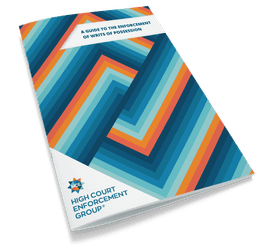The resumption of enforcement visits

Although we have been undertaking enforcement visits at commercial premises for some time, we have not been permitted to do so at residential addresses since 23rd March.
This will change on 24th August, when enforcement visits to residential premises will recommence.
If you have not already read our strategy for post-lockdown enforcement, it is available on our website.
The strategy has been developed in line with Government guidelines and the plan set out by our industry association, the High Court Enforcement Officers Association (HCEOA).
This article covers how we will be implementing our strategy through the different stages of enforcement that are set out in the Taking Control of Goods Regulations 2013.
Compliance stage
For a new instruction, we continue to send the notice of enforcement, which gives the debtor 7 clear days to make payment in full. If they do so, then this is the end of the matter. If not, the case will progress to enforcement stage 1.
Post-lockdown changes
For cases started during lockdown where a notice of enforcement has been sent but no payment received, before we proceed to visit any property, we will attempt to contact the debtor to identify any vulnerability or shielding and this detail will be recorded on the case file and the client will be informed.
Enforcement stage 1
In enforcement stage 1, an enforcement agent will attend the debtor’s primary address, looking to obtain payment in full or an agreed payment plan, covered by a controlled goods agreement. If this does not happen, enforcement moves to stage 2.
Post-lockdown changes
Visits will be contactless in line with HCEOA safe working practices guidance, including observing appropriate social distancing measures. We have supplied our enforcement agents with appropriate protective equipment to use during any visits.
Enforcement agents will also be alert for vulnerabilities and changes in debtors’ circumstances.
Enforcement stage 2
When it reaches this stage, the enforcement agent will take a detailed inventory of the debtors’ goods and this will be used to compile a controlled goods agreement. These controlled goods cannot be sold and if any agreed payment arrangements are not met by the debtor, then these goods may be sold to satisfy the debt.
Post-lockdown changes
Enforcement agents will be following the same contactless visits as in stage 1.
There has been some discussion around “virtual visits” and the Ministry of Justice has recently announced that taking control of goods must be done by the enforcement agent in person at the premises.
Sale or disposal stage
If the debtor has not met their agreed payment obligations then the controlled goods will be sold, normally at public auction.
Post-lockdown changes
Most sales are likely to take place via online auction sites, or by private treaty (with court permission).
Training
All our enforcement agents have undertaken the necessary mandatory industry training, covering: the effective use of protective equipment, social distancing requirements, how to protect themselves and those that they encounter in the community.
They have also undertaken a further refresher course designed by our award-winning Training Division which includes how to identify any vulnerabilities or changes in circumstance.
Further information and instructions
If you would like to instruct us, you can use our online forms.
If you require any further information, please contact us on 08450 999 666 / clientservices@hcegroup.co.uk



